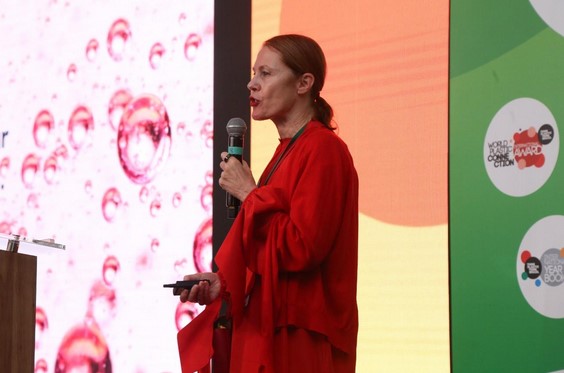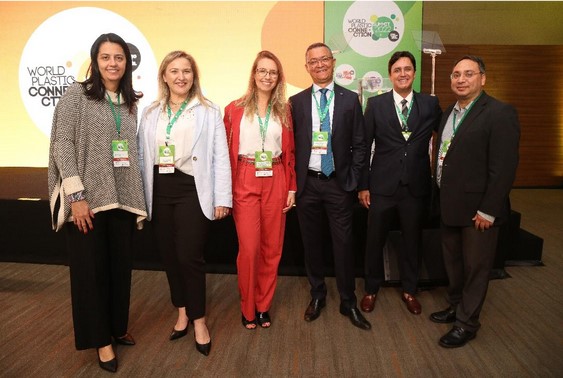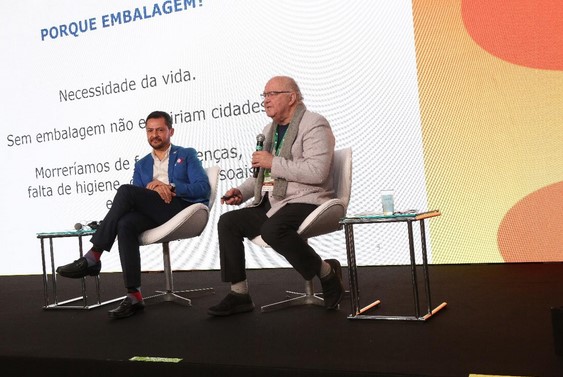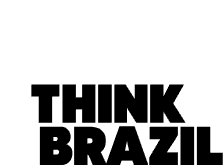
With the theme: “Innovation, Design and Sustainability as global differentials of the Brazilian plastic processing industry”, the event received around 400 people in the two days of seminars. Transmissions of lectures with simultaneous translation into Portuguese, Spanish and English achieved over 14 thousand accesses, from 67 countries.
Italian designers Rossana Orlandi and Nicoletta Brugnoni opened the first day of seminars with the lecture: “Plastic is not reason for guilt, but rather a source of creativity”, presenting the international award Ro Plastic 2022, part of the RoGuiltlessPlastic project, created to raise awareness and involve the global community of creators in design that respects the principles of sustainability, responsibility and emotion, based on criteria of recycling, reuse and upcycle of plastic wastes and others.
“Plastic is not guilty. Without it we would not survive. Chemists discovered polypropylene in the 50s. Can you imagine how life was before it? […]People at first found it horrible the idea of recycling plastic into art, but we show how beautiful it can be”, said Rossana Orlandi.
Aesthetics was also present in the talk of Finnish journalist, design expert and futurist Susanna Björklund in her lecture: “Sustainability, Empathy, and Design”. Susanna highlighted that basic principles like transparency, quality and empathy are closely connected to sustainability. During her presentation she mentioned several examples to demonstrate that functionality, design, and sustainability can walk hand in hand.
“Nobody buys ugly furniture just for being sustainable. That’s why aesthetics is very important. […] What bothers me is that this sustainability issue is much grounded on guilt. We all know that there are financing challenges, great changes require time and we try to think of ways to encourage people, companies, and governments to be the change”, stated Susanna Björklund.
Next came the turn of Maria Laura dos Santos Leite, Valgroup sustainability projects expert, to present the lecture: “Valgroup, innovation for more recycling”, showing some technologies adopted by the company, like BioV – substance that accelerates in 5 years plastic biodegradation – and De-inking, which removes plastic pigments without solvents.
“Our goal for 2040 is to reach level of neutrality in carbon emission and recycle 100% of plastic packaging produced”, explains Maria Laura.
Gabriel Muller was the next, with the lecture: “Braskem Circular Economy Ecosystem”. In his speech, the group’s circular economy manager presented some goals, like 15% reduction in carbon emissions by 2030; expansion of the portfolio of recycle material products in 300 thousand tons by 2025, and 1.5 million by 2030, in addition to the project Ecossistema Wenew, whose pillars are technology, education and circular design.
“Chemistry and plastic are present in several processed products, and waste management is a recent concern in habits of consumption of companies, the society and the government. Appropriately treating this waste and fulfilling its role in a circular economy is increasingly fundamental”, said Gabriel Muller.
Rodrigo Zwetsch, Beta-i Brasil Product owner, on the other hand, presented the lecture: “Collab Trends Deep Tech survey results”, which addressed the result of a mapping made in August 2022 with large national and foreign companies operating in Brazil that detected the difficulties found to implant innovation culture in work teams.
“The fact that you created an innovation area does not release the responsibility of the other sectors. One of the main aspects we brought up is the lack of full qualification of the company. Creating an innovation team can be interesting as long as you count on qualification for the company to understand the result and its importance”, explained Rodrigo Zwetsch.
Soon after, Brazilian professor Charles Eliezer Diesendruck, from Technion University (Israel) presented the lecture: “Mechanochemistry in plastics – (innovation in the material improvement)”. Diesendruck is an internationally renowned expert in mechanochemistry, a branch of chemistry that studies mainly physical properties of chemical compounds to induce chemical transformations. Many materials we use everyday are made of polymers and are subject to mechanical stress. For this reason, mechanochemistry seeks to create materials that respond when damaged by external forces, whether by reporting the damage, reinforcing or even regenerating them.

“The problem is that after the first use, the plastic’s properties do not remain so good. What we need to do is to keep the properties. If we manage to solve this problem, plastic will no longer be the bad guy”, stated Charles.
The last lecture on the first day of seminars was that by Marcus Vinicius, Arab-Brazilian Chamber of Commerce’s Market Intelligence Coordinator: “Halal market and tips for negotiation with Arab companies”. In his speech, Marcus addressed cultural issues and negotiation style of Arab people, and taught about Halal Certification. Halal is an Arab word meaning lawful, permitted. It is turned to Muslim consumers. It is traditionally required in the food industry, but it also applies to several sectors. It certifies that the whole production chain is compliant with Islamic law (Sharia).
“The company that obtains this certification is showing that it is concerned with the community, and is also attentive to the animal testing issue, that the company is qualified. The certification also pervades the preference of non Muslim population markets”, explained Marcus.
Second day with focus on inspiration
The second day of seminars had many exchanges of knowledge and inspiring messages. The opening was a round table with two packaging design experts: Brazilian Lincoln Seragini and Mexican Luís Rodolfo Arévalo. The professionals shared their experience and impressions on career.

“I have stated, for decades, that design has been more important the technology in the packaging market. Everybody expects innovation as something miraculous, but it is not. Innovation happens through design. The world of sustainability requires lots of technology and, of course, it does not include the design. That’s why the production of the future is “Ecodesign”, said Lincoln Seragini.
“I think that the power of design is huge; design is very important because it is already proved why companies that count on a head of design present better performance in terms of business. Design must be part of the company direction”, stated Luís Rodolfo Arévalo at the end.
After Color Trend and International Yearbook presentations and the World Plastic Connection Award 2022 ceremony, it was the turn of Startse Chief Innovation Officer Christiano Kruel’s lecture: “Infinite Organizations”. “Do you want to live forever? You must be reborn everyday”, said the excited Kruel at the beginning of his speech, and then he recommended behaviors that extend the life of a company.
“Companies that tend to extend their infinity have flexible and adaptable operational systems. It is necessary to have capacity to make a very fast organizational drawing, digital structures to enable these transformations, and we must be more connected to the world”, stated Christiano.
Beat Grüninger, Senior Director at Elevate global consultancy, closed the Digital Seminar with a lecture on sustainability reports for companies. The presentation addressed ESG (Environmental, social, and corporate governance), approach that assesses whether the companies demonstrate their practices and how they manage environmental risks.
Beat also explained how the GRI (Global Reporting Initiative) Certification works, which informs companies and governments impacts in issues like climate changes, human rights, and corruption. Brazil is among the countries with more reports according to GRI, with 2570 reports published. “Making a sustainability report is a complex work that demands collaboration from all areas, but brings benefits, both internally and to the company image”, said Grüninger.
Focus on 2023
After the first edition, made in online format due to the COVID-19 pandemic, the second edition of the World Plastic Connection Summit, held also in on-site format, encouraged Carlos Moreira, Think Plastic Brasil’s Strategy and Project Planning Manager, who has already confirmed the III World Plastic Connection Summit, to occur in August 21 – 24, 2023.
“The central goal is to place the WPCS in the global calendar, and that will happen because our industry is strong, has competence and quality, and we are in the right direction. We are here to strengthen the internationalization process and it is with design, innovation and sustainability that we will be placed on the map”, stated Moreira.
 Home
Home 
